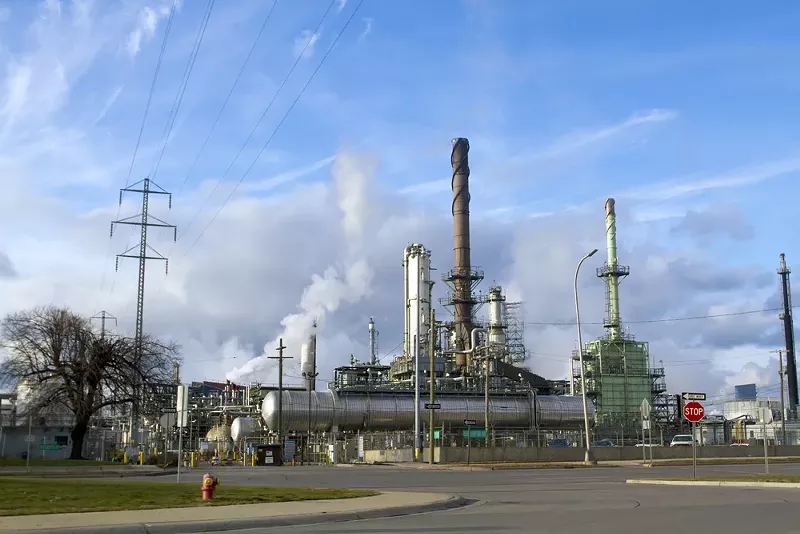
Steve Neavling
Marathon Petroleum Co.
Marathon Petroleum Co. will cough up more than $360,000 in fines and community investments in Southwest Detroit under a consent order with state environmental regulators over air quality violations.
The tentative agreement with the Michigan Department of Environment, Great Lakes, and Energy (EGLE) requires the oil giant to pay $282,000 to install an air filtration system at Mark Tain Schools for Scholars and provide real-time data on air quality around the sprawling, 250-acre refinery.
Marathon must also pay nearly $82,000 in fines for violations that include a gas flare malfunction that released hydrogen sulfide and mercaptan vapor that blanketed the area in a nauseating stench. At the time, residents complained of vomiting, troubled or labored breathing, and irritated eyes and throats.
“The two projects Marathon will do had community input and will provide direct benefits to students at the Mark Twain School and the community as a whole,” Air Quality Enforcement Supervisor Jenine Camilleri says in a news release. “This is the result of the community around Marathon continuing to advocate for projects to improve air quality and public health.”
Marathon is among numerous chemical-spewing facilities in 48217, the most polluted ZIP code in Michigan, which Metro Times featured in a cover story about environmental racism in January.
The agreement with the state involved input from residents and the Sierra Club, which has long played an active role in reducing air pollution in the community.
“This is great news because the performance of our school children is directly tied to the environments that they learn in,” Justin Onwenu, environmental justice organizer with Sierra Club in Detroit, says in a news release. “It’s also clear that we have more work to do to make sure that all communities have access to clean air, especially for children, the elderly and those with underlying health conditions.”
Delores Leonard, a lifelong resident whose asthma is so bad that she keeps an inhaler in her purse, kitchen table, and nightstand, said the agreement is an important step in protecting children.
“For far too long our community has dealt with release events and poor air quality,” Leonard says. “This agreement will by no means make up for the decades of air pollution that we’ve faced but I’m excited to see that our children will be better protected from air pollution. Children are our future and they must be valued and protected.”
Marathon produces up to 140,000 barrels of oil a day, pumping out hundreds of tons of nitrous oxide, sulfur dioxide, and carbon monoxide, according to EPA records. Today, the refinery emits 29 different types of toxins, which waft across neighborhoods and put residents at an elevated risk of cancer, respiratory disease, asthma, and liver failure. The refinery also emits at least eight chemicals known to cause cancer, including benzene, dioxin, and lead compounds, according to the EPA.
The acrid smell emanating from the plant is so intense that residents often feel nauseated inside their homes with the windows shut.
EGLE scheduled an online information session on Aug. 5 and a public hearing on Sept. 2.
Stay on top of Detroit news and views. Sign up for our weekly issue newsletter delivered each Wednesday.

